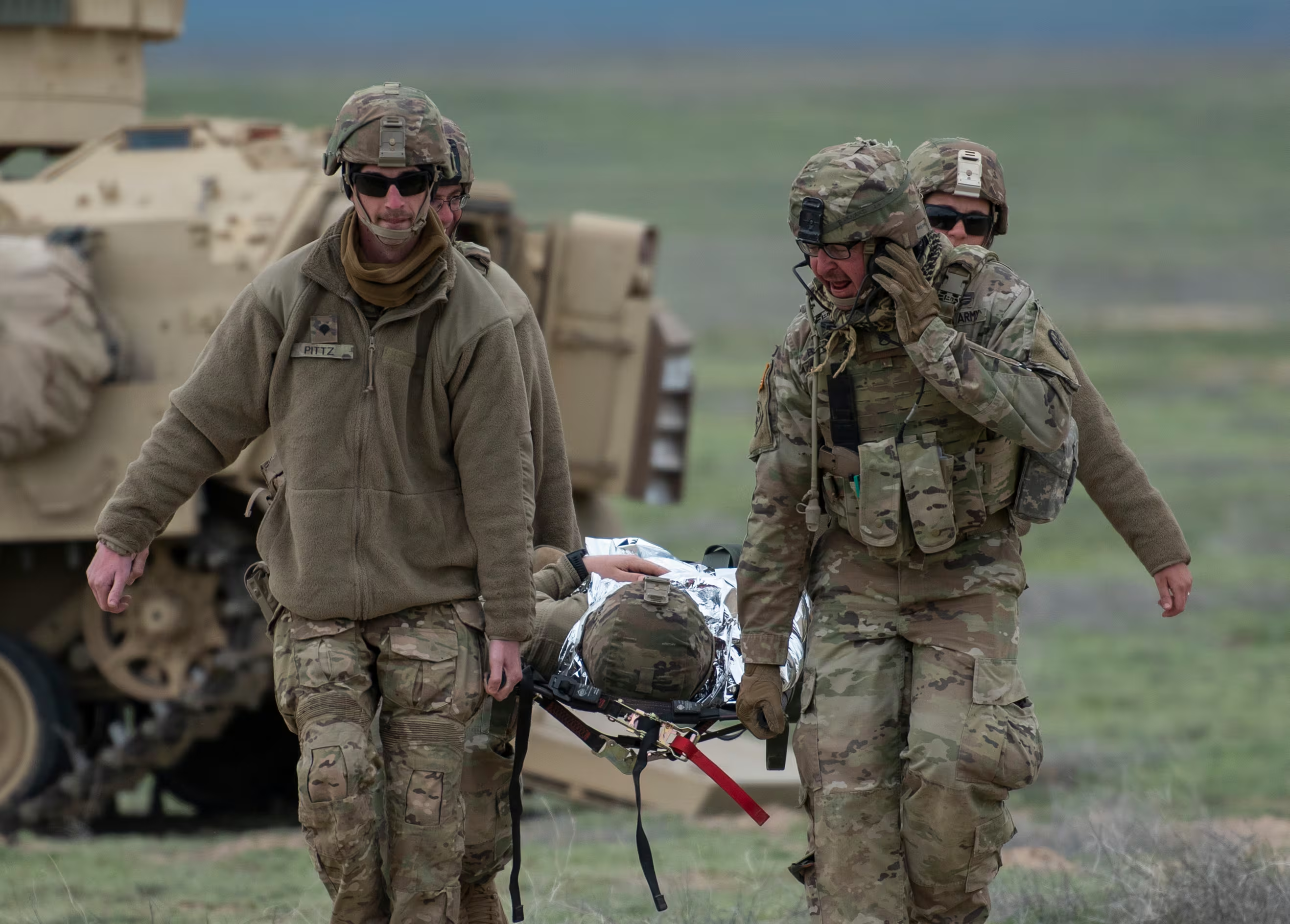GALLIPOLI, Turkey — For the first time at age 95, Bill Grayden has come to Gallipoli, where his father stormed the beach and took a bullet through his lung during the ill-fated British-led World War I invasion.
Grayden was among thousands of Australians and New Zealanders who made the pilgrimage from the southern hemisphere to this distant peninsula in Turkey. They joined world leaders at a dawn service Saturday marking exactly 100 years since the invasion, which had aimed to secure a naval route from the Mediterranean to Istanbul through the Dardanelles, and take the Ottomans out of the war.
During the emotional ceremony, Britain's Prince Charles and the prime ministers of Australia and New Zealand spoke of the heroism of the soldiers from their countries and other Allied nations.
"For so many, the rising sun that day would be their last," Australia's Chief of Defense, Air Chief Marshal Mark Binskin, told the crowd of thousands gathered at Anzac Cove near the landing site.
That was not the case for Bill Grayden's father Len. Five days after the landing, the elder Grayden was found wounded and nearly motionless on the field. During the heat of battle, someone noticed a slight hand movement and he was evacuated to a hospital ship and ultimately survived. The subtle moment that determined his fate demonstrates how small differences can substantially change the course of history.
Len Grayden would return to Australia to raise a family. His son Bill later served in multiple campaigns in World War II and became a politician. He has raised 10 children of his own, and now has 44 grandchildren, 20 great grandchildren and so far one great-great grandchild.
The Gallipoli campaign also altered the course for the countries on both sides of the trenches. The landings marked the start of a fierce battle that lasted for eight months. Around 44,000 Allied troops and 86,000 Ottoman soldiers died. Australians and New Zealanders mark the anniversary of the landings every year as important national days of remembrance.

The Turkish army's aerobatic demonstration team, the Turkish Stars, perform with their supersonic jets during the Turkish International Service at Mehmetcik Abide in the Gallipoli Peninsula, Turkey, April 24, 2015. As world leaders gather with the descendants of the fighters in Gallipoli, the memories of one of the most harrowing campaigns of the 20th century have come surging back to life. The doomed Allied offensive to secure a naval route from the Mediterranean to Istanbul through the Dardanelles, and take the Ottomans out of the war, resulted in over 130,000 deaths on both sides.
Photo Credit: Burhan Ozbilici/AP
Many of the attendees at Saturday's service had slept at the commemoration site in sleeping bags. Most had won the coveted tickets in national lotteries.
The tragic fate of troops from Australia and New Zealand is said to have inspired an identity distinct from the British. The anniversary of the start of the land campaign on April 25, known as ANZAC Day, after the Australia and New Zealand Army Corps, is marked as a coming of age for both nations.
"In volunteering to serve, they became more than soldiers. They became the founding heroes of modern Australia," Australian Prime Minister Tony Abbott said at the service.
The doomed offensive came to be seen as a folly of British war planning. The decision to launch the attack nearly ended the career of Winston Churchill, who as First Lord of the Admiralty came up with the plan he thought would help bring an early end to the war.
Prince Charles spoke about soldiers who were "tormented by the thought of their comrades being left behind" and that their graves would remain unvisited.
He appeared to be moved as he read from passages written by Lt. Ken Miller of the 2nd Battalion and Benjamin Leane of the 10th Battalion. Leane had addressed his wife and children from Gallipoli, saying that he was not afraid of death or what comes after. He later died in France, never to see them again.
Turkish officials and soldiers also took part in the dawn remembrance, part of two days of ceremonies at the site of the battle. Gallipoli was also important in the emergence of modern Turkey.

Members of historical Turkish military band, Mehter, perform during the Turkish International Service at Mehmetcik Abide in the Gallipoli Peninsula, Turkey, April 24, 2015.
Photo Credit: Burhan Ozbilici/AP
Mustafa Kemal Ataturk used his prominence as a commander at Gallipoli, known as Canakkale to the Turks, to vault into prominence, lead Turkey's War of Independence and ultimately found the Turkish Republic.
Thousands marched in Gallipoli to honor the soldiers of the Turkish 57th Regiment, among the first unit to defend against the ANZAC landings, which Ataturk — then Lt.Col. Mustafa Kemal — famously commanded: "I do not order you to attack, I order you to die."
In the Turkish capital Ankara, the mausoleum of Ataturk was left open throughout the night allowing thousands of visitors to pay their respects to their "Gazi" — Ataturk's honorary title as a victorious Turkish warrior.
A century after the smoke cleared from the beaches at Gallipoli, officials from the countries representing both sides of the battles spoke of their respect for their former enemies.
New Zealand's Prime Minister John Key noted that when the ANZAC forces landed, Ottoman Turks were defending their homeland.
"We have coastlines similar to this at home. If the situation were reversed we know that New Zealand soldiers would have been willing to lay down their lives to defend their country," he said.
___
Suzan Fraser in Ankara contributed to this report.




